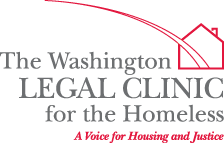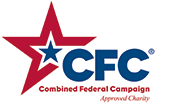On Thursday, July 23, the DC Council took its final vote on the Fiscal Year 2021 budget, choosing to cut health and human services during a global pandemic because the majority of councilmembers decided that undoing an advertising tax was more important. Only Councilmembers Brianne Nadeau (Ward 1) and David Grosso (At-Large) voted against this amendment.
A little background and context are in order. We have been updating you on investments in housing at each step. On Tuesday, when the second vote was supposed to happen, we had been hoping to see some increases in funding to affordable housing programs, some recognition and response to the humanitarian crisis developing with regard to COVID-19 cases among people who are homeless, or maybe some more funds for public housing repairs.
Instead, on Tuesday, debate over an amendment that would have cut library funding to curtail part of the advertising tax somehow devolved into Chairman Mendelson proposing a recess to come up with $18 million in cuts to completely repeal the advertising tax. He suggested starting with Council “enhancements” to libraries, eviction prevention, and excluded workers unemployment. No one knew how these decisions would be made—when asked by a councilmember what the process would look like, Chairman Mendelson responded that the process was “as clear as milk.”
Many DC residents reacted strongly and swiftly to this threat to safety net programs. Hundreds if not thousands of DC residents contacted councilmembers to oppose cuts, particularly cuts to programs that serve low-income residents. Excluded workers protested outside of Chairman Mendelson’s house on Wednesday—his threat to cut their financial support had occurred only a few hours after he committed to protesters that he would fund the program. Social media blew up with DC residents outraged at what the Chairman was proposing. #JustRecoveryDC trended on Twitter.
At around 10PM on Wednesday, Chairman Mendelson circulated an amendment that proposed to eliminate the advertising tax in exchange for cuts to mental health services and the elimination of ongoing funding for eviction prevention and homeless outreach services. Introducing the amendment on Thursday, Chairman Mendelson seemed to lash out at the public, stating that the Council has “not met the costly demands of the most strident groups” and “don’t preach to us about morality.”
But the budget is a moral document. As our colleague at Miriam’s Kitchen, Jesse Rabinowitz, stated: “By finding $18 million in just two days, the Council reminds us that corporate interests are worthy of resources while people experiencing homelessness must be satisfied with crumbs. Instead of using this $18 million to fix a manufactured crisis, the Council could have used these $18 million to end chronic homelessness for more than 650 additional individuals.”
Councilmember Nadeau gave the most comprehensive, biting statement on the amendment and the process by which it was negotiated. Nadeau explains that no one would help her find $800,000 for healthcare for undocumented residents but: “…when the choice was made to recess on Tuesday, the Chairman was able to craft a plan to produce $18 million in revenue in just about 24 hours, a portion of that money coming from a PAYGO Capital dollars. A pot of money he expressly and repeatedly prohibited any of the rest of us from tapping into.” She went on to lay out the impact of the cuts: “The repeal we are voting on today converts $3.5 million from ERAP and $1.8 million from Homeless Outreach to one-time dollars. That is on top of $1.32 million for shelters for transition age youth that is proposed to be converted in the ANS [Amendment in the Nature of a Substitute] he circulated on Monday. In total, these conversions constitute a reduction of $19,860,000 collectively from these three programs…That is not to mention that the proposed amendment before us now cuts $4 million from the investments made by this Council in Community Based Mental Health Services… because $2 million of this cut has a federal Medicaid match, what this cut actually means is that we have left an additional $4.7 million in federal dollars on the table…”
After making the point that any additional funds could have gone to other underfunded programs to serve the community, Nadeau indicted the process: “I want to conclude by talking about the choice to use power and influence to subvert our legislative process. This past Tuesday an unprecedented and opportunistic action was taken to recess our meeting in order to push this body into a full repeal of the ad tax. I was not invited to the 11th hour meetings held behind figurative locked doors in small enough groups to avoid open meetings requirements to make decisions about the people’s budget. I did not receive a phone call asking for my input, despite cuts being taken from homeless outreach and ERAP, programs under my purview as chair of the Committee on Human Services. And I have to say that I have never been so proud to not be invited to the popular kids table. I wear my exclusion from this opaque process as a badge of honor and just as I played no part in those negotiations, I can play no part in pushing this proposal forward.”
Councilmember Nadeau clearly and reasonably expected to be part of a fair, transparent process. But she’s not the only one who should demand to be in the room where it happens. We all deserve to be in the room where it happens, watching and engaging in democracy, and holding our elected officials accountable when they make troubling decisions.
No one really knows how the
Parties get to yes
The pieces that are sacrificed in
Ev’ry game of chess
We just assume that it happens
But no one else is in
The room where it happens
Hold your nose and close your eyes
We want our leaders to save the day
But we don’t get a say in what they trade away
We dream of a brand new start
But we dream in the dark for the most part
Dark as a tomb where it happens
“The Room Where It Happens,” Hamilton





